2013 IFANS Conference on Global Affairs titled,
“Northeast Asia Peace and Cooperation Initiative (NAPCI) and Trustpolitik”
Held in celebration of the 50th anniversary of the KNDA
The Institute of Foreign Affairs and National Security (IFANS) of the Korea National Diplomatic Academy (KNDA) held the 2013 IFANS Conference on Global Affairs under the theme, “Northeast Asia Peace and Cooperation Initiative and Trustpolitik” at the KNDA on November 14, 2013.
At the opening ceremony of the conference, President PARK Geun-hye delivered congratulatory remarks and Foreign Minister YUN Byung-se made an opening speech. Three sessions of the conference were dedicated to discussions on “Northeast Asia Peace and Cooperation Initiative,” “How to Cooperate in Northeast Asia?” and “What is the Role of Korea” respectively.
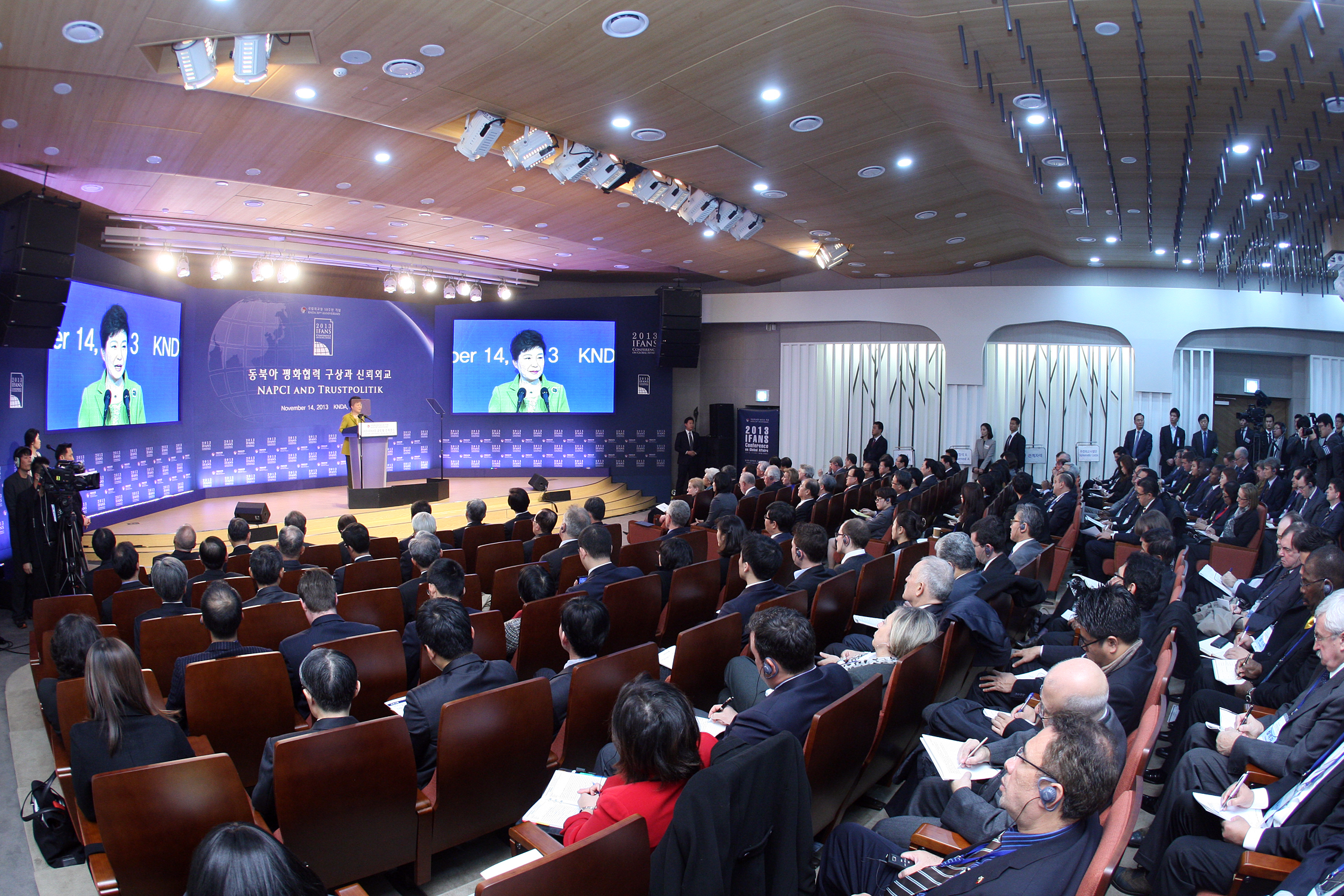
In her congratulatory remarks, President PARK Geun-hye explained that the Northeast Asia Peace and Cooperation Initiative or NAPCI seeks to mitigate mistrust and confrontation between countries in the region by beginning with cooperation in easy but meaningful issues, accumulating practices of cooperation based on trust and expanding such practices to other issues. President PARK also stated that as Germany and France, and Germany and Poland did, the countries in the region can tear down the wall of history problems, the source of rows and distrust, by publishing a joint Northeast Asia history textbook. She also stressed that rows and confrontation should be resolved in a peaceful manner and countries in the region should prevent military clashes by taking various confidence-building steps.
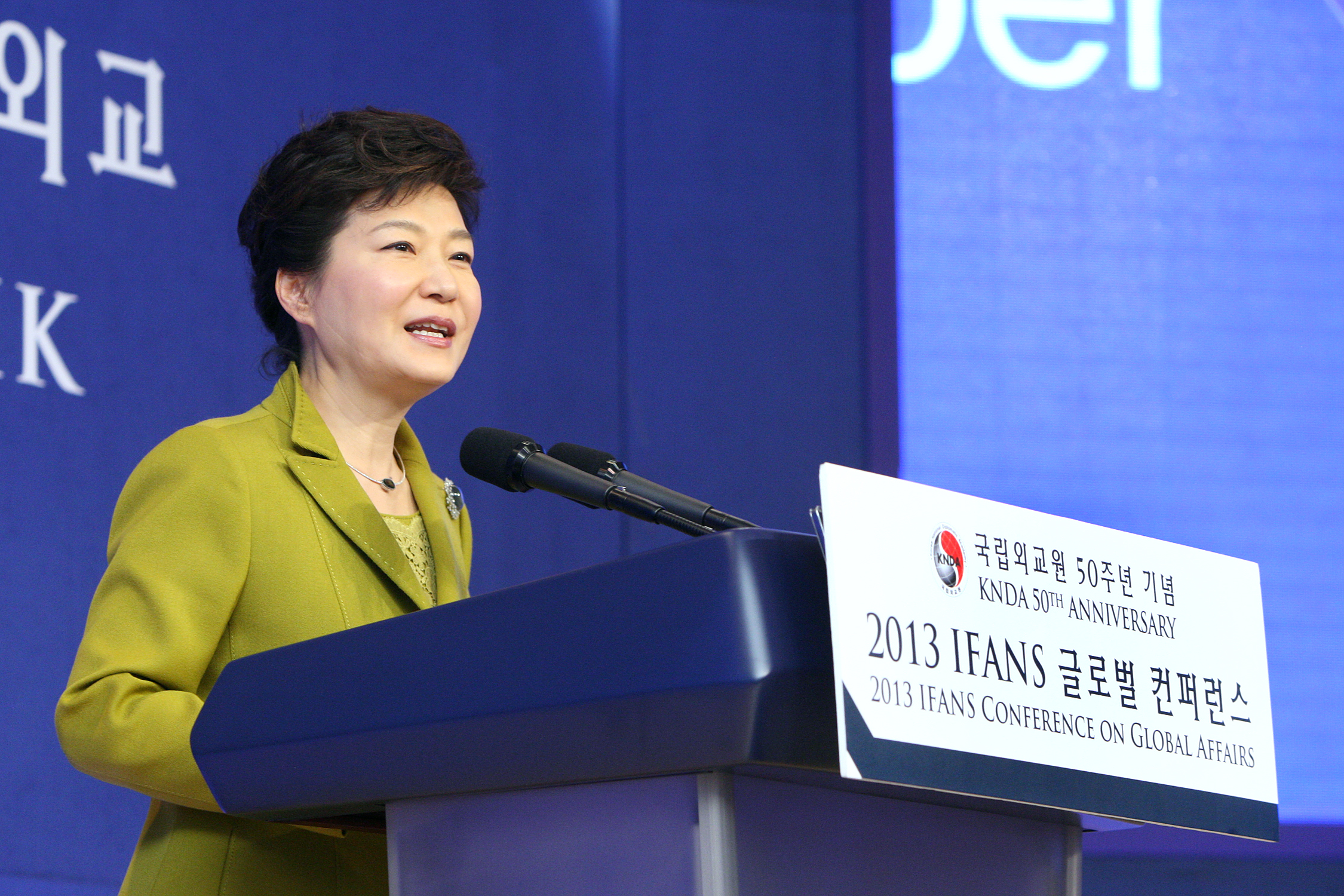
In his opening speech, Foreign Minister YUN Byung-se said that the NAPCI is an effort to build trust in Northeast Asia, where there is a lack of trust, by applying trustpolitik to the region. He also emphasized that trust is an asset for cooperation, a public infrastructure and an indispensable element to realize genuine peace.
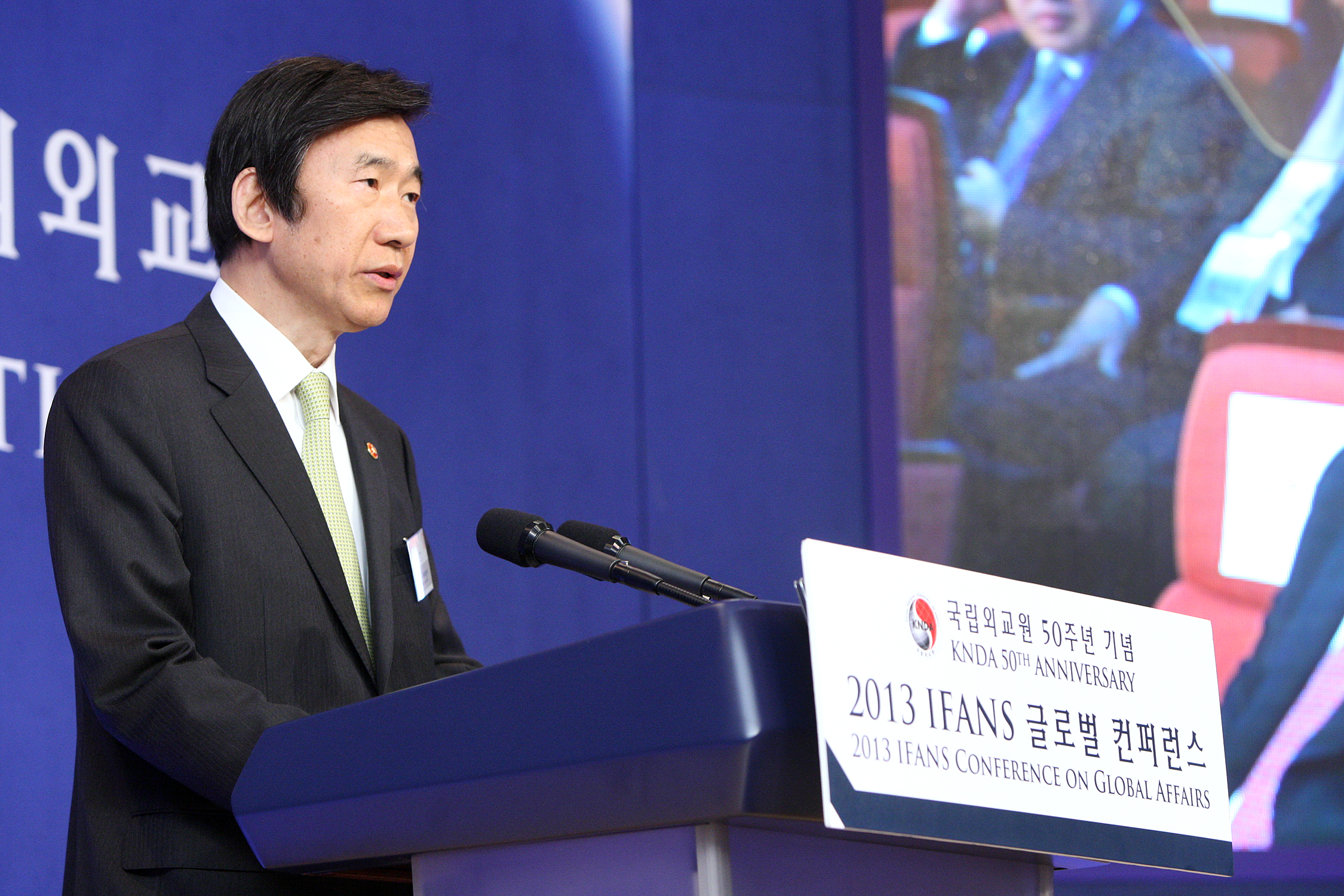
In Session 1, “Northeast Asia Peace and Cooperation Initiative (NAPCI),” all participants expressed their strong support for the NAPCI, while the U.S. and China showed difference in their stances regarding ways to address the North Korean nuclear issue.
Former U.S. Secretary of State Madeleine ALBRIGHT said regarding the Park Geun-hye government’s NAPCI that it could refer to the experience of Europe which managed to deepen cooperation under a common purpose and proposed to link the NAPCI to other organizations that are already in the region (such as the APEC and the ASEAN). Former Secretary ALBRIGHT, speaking highly of the ROK’s balanced policy toward North Korea, went on to say that North Korea’s sincere change of attitude is needed in addressing its nuclear issue and that trilateral cooperation between the ROK, U.S. and Japan is essential to establish peace and stability in Northeast Asia.
Chair of Foreign Affairs Committee of the National People’s Congress FU Ying (former Vice Minister of Foreign Affairs of China) expressed China’s support for the NAPCI, saying that the initiative shares common points with China’s “new security approach” in that they are both anchored in “trust.” She also stated that for the resumption of the six-party talks, relevant countries should develop measures that reflect their sincerity and emphasized the need to explore the timing for turning the “armistice agreement” into a “peace agreement.”
Former Minister for Foreign Affairs of Japan MAEHARA Seiji agreed with the basic concept and direction of the NAPCI and expressed that (i) the U.S. and Japan should build trust through political and economic cooperation and that (ii) the existing frameworks such as the six-party talks, ASEAN+3, the consultative body for FTA among Korea, China and Japan, as well as the ARF, APEC and TPP should be well capitalized in establishing political and economic stability in the region. He also stressed the importance of Japan’s role in assisting the U.S. in case of crisis on the Korean peninsula.
Former Minister of Foreign Affairs of Thailand Surin PITSUWAN took the experience of the ASEAN as an example as he stressed that countries in the region should (i) have a transparent and open attitude through future-oriented concession and cooperation, and (ii) secure the support from extra-regional partners in order to increase the feasibility of the NAPCI. He also stressed that the role of the ARF in resolving the North Korean nuclear issue as all members of the six-party talks are represented in the organization.
OSCE High Commissioner on National Minorities Knut VOLLEBAEK (former Minister of Foreign Affairs of Norway) mentioned the experiences of the Helsinki Process in reference to the NAPCI where countries in the region (i) established comprehensive shared principles, and (2) lived up to them. He emphasized that “trust” should be built through “mutual understanding.”
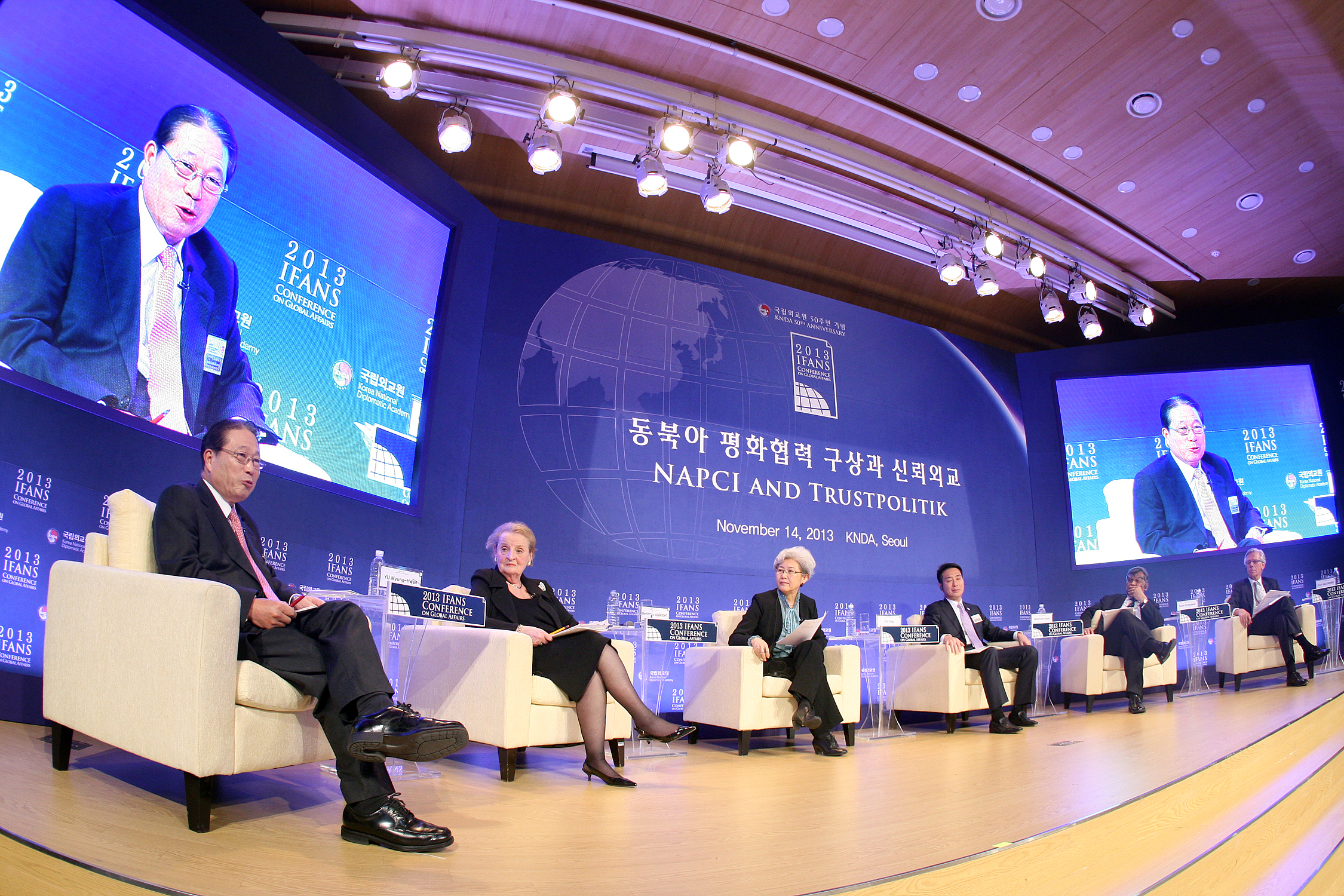
In Session 2, “How to Cooperate in Northeast Asia,” Vice Minister of Foreign Affairs CHO Tae-yul said that the Park Geun-hye government’s NAPCI differs from initiatives of the previous governments and that the current government is cooperating in realistic and practical areas. He emphasized that the NAPCI (i) complements the existing cooperation mechanisms in the security area, (ii) opens up the possibility of North Korea’s participation, and (iii) is essential given the current state of strained relations among Korea, China and Japan.
Deputy Director of Russian APEC Study Center Gleb IVASHENTSOV agreed with the basic concept of the NAPCI and stressed that Russia is a major player in Northeast Asia. He also presented a vision of expanding cooperation in the energy sector, to which Russia can play as a main contributor as a way to realize the initiative, and proposed for North Korea’s participation in this measure. He added that the North Korean nuclear issue is an important part of Russia’s interest.
Senior Director of Albright Stonebridge Group Evans REVERE proposed as ways to realize the NAPCI that countries in Northeast Asia (i) frankly recognize obstacles and challenges facing the region, (ii) contain conflicts from escalating to armed conflicts, and (iii) discuss achievable short-term targets concerning territorial disputes (such as demilitarization and development of code of conduct on military activities). He also expressed that issues related to sovereignty and those of economy should be dealt separately when it comes to issues such as the development of resources in disputed areas, and that each country should address their public nationalism with future-oriented historical awareness.
Former Japanese Ambassador to the Republic of Korea TAKANO Toshiyuki stressed that economic cooperation is vital for the future of Northeast Asia and proposed measures such as (i) making efforts for further economic cooperation such as an FTA among Korea, China and Japan, (ii) cooperating on energy and environment, and nuclear safety issues, and (iii) making trust-building efforts in the military and security area. He also explained that there are many in Japan who believe that a sincere apology should be made to settle the historical issue between Korea and Japan.
Professor at the Australian National University Hugh WHITE asserted that the current shift of order in Asia is based on the change in power dynamics among the major powers, meaning whether the regional order becomes cooperative or conflicted depends on how countries in the region would accept the relative redistribution of military power and economic wealth between the U.S., China and Japan from the past two decades. Also, he pointed out that ironically, East Asia’s economic success played a role in creating conflicts, leading to a shift of the regional order.
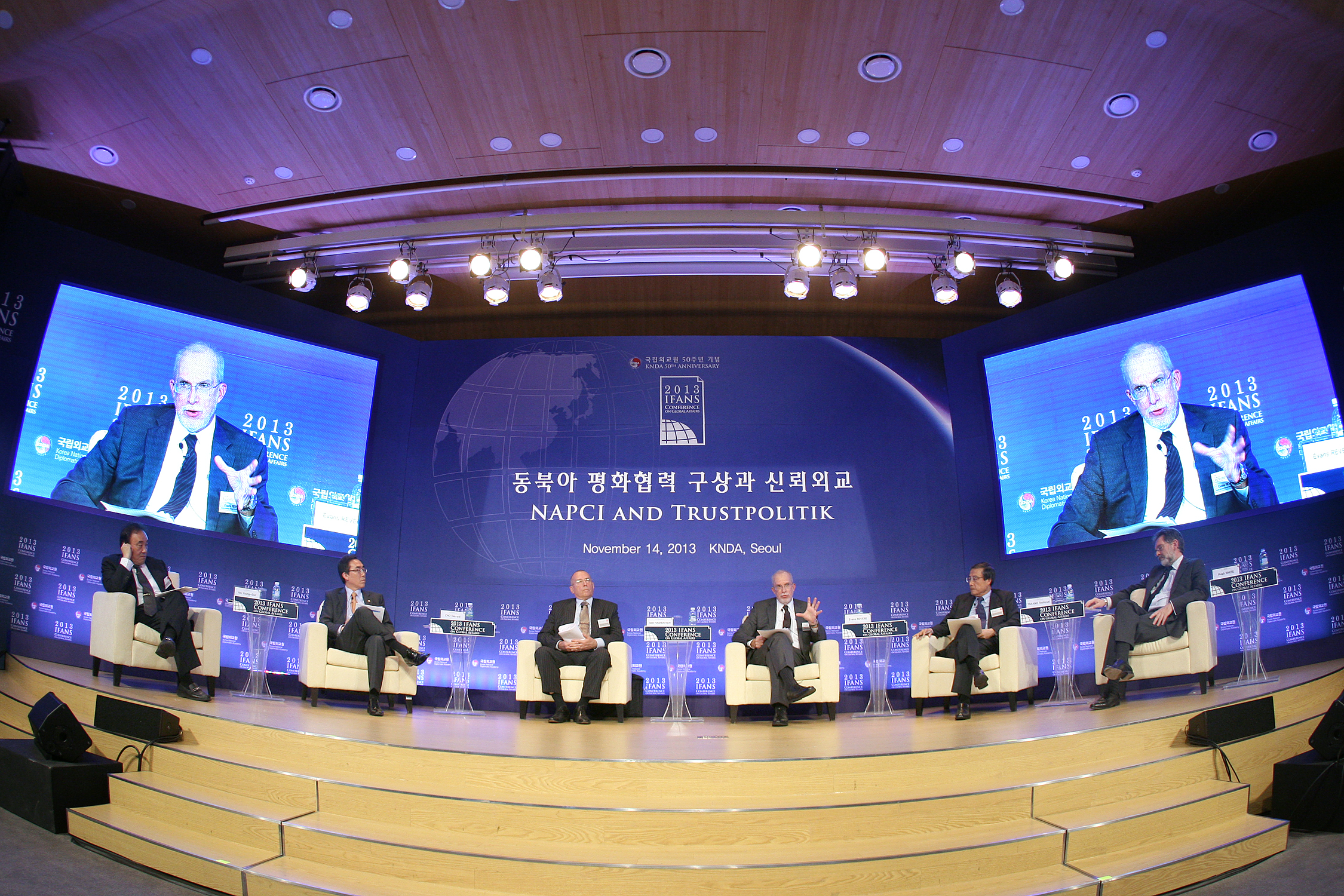
In Session 3, “What is the Role of Korea?”, panelists proposed future tasks for Korea such as (i) gradual and step-by-step implementation of the NAPCI with active participation of the U.S., Japan, China and Russia and seeking multidimensional multilateral cooperation, (ii) improving the Korea-Japan relations and restoring the Korea-China-Japan relations by curbing overheated nationalism in domestic arena, and (iii) producing tangible achievements in the six-party talks.
Professor at Inha University KIM Yong-Ho highlighted the role of Korea as a middle power in creating a “like-minded community”* for multilateral cooperation in Northeast Asia. He also asserted that for effective implementation of policies toward North Korea, it is important to collect information without prejudice on the reality of North Korea (“Theory of Collapse” or “Theory of Change”) and to build the national consensus by raising public awareness on the initiative.
* A “like-minded community” refers to a network of experts (government officials, scholars, the media, and civic groups) from countries in Northeast Asia.
Professor at KNDA KO Jae-nam said that the NAPCI should create a virtuous cycle along with Korea’s other policies such as the “Trust-building Process on the Korean Peninsula” and the “Eurasia Initiative.” He stressed that Korea should promote multidimensional multilateral cooperation through gradual, phased, incremental, reciprocal and open approaches, while at the same time, seeking to develop these initiatives in line with the existing cooperative mechanisms.
Professor at Korea University KIM Sung-han stated that in order to establish a multilateral security cooperative mechanism in Northeast Asia, Korea needs to make efforts to (i) dispel the U.S.’ concerns over the link between the ROK-US alliance and the U.S.-Japan alliance by improving the relation with Japan, (ii) pursue an initiative to resume a summit meeting among Korea, China and Japan, (iii) deepen the 1.5 Track Strategic Dialogue among Korea, U.S., and China, (iii) attract Russia’s interest through strategic dialogues with Russia, and (iv) reject a “dialogue for the sake of dialogue” and produce substantive results from the six-party talks under the principle of not accepting North Korea’s nuclear program.
Professor at Sungkyunkwan University KIM Tae Hyo said that in order to build trust and bolster cooperation amongst countries in Northeast Asia, efforts should be made to (i) expand mutual interests between the U.S. and China, and (ii) strengthen cooperation among Korea, the U.S. and Japan to resolve the North Korean nuclear issue and attract Russia’s constructive role in cooperation. Also, Professor KIM asserted that policies should be more consistent and that nationalistic views such as excessive anti-Japanese or anti-Chinese sentiment should be controlled so as to expand the role of Korea.
Professor at Seoul National University PARK Cheol Hee emphasized that (i) the “Strategic Dialogues among Korea, the U.S., and China” is important in dealing with the North Korea issue and encouraging denuclearization and reform/openness in North Korea, (ii) trust should be built based on legitimacy and principles rather than power in establishing a framework for cooperation among Korea, China and Japan, and (iii) Korea should play a leading role in building the desirable relations among Korea, U.S. and Japan which can together serve as a defensive cooperative mechanism to protect the liberal democratic order in the region.
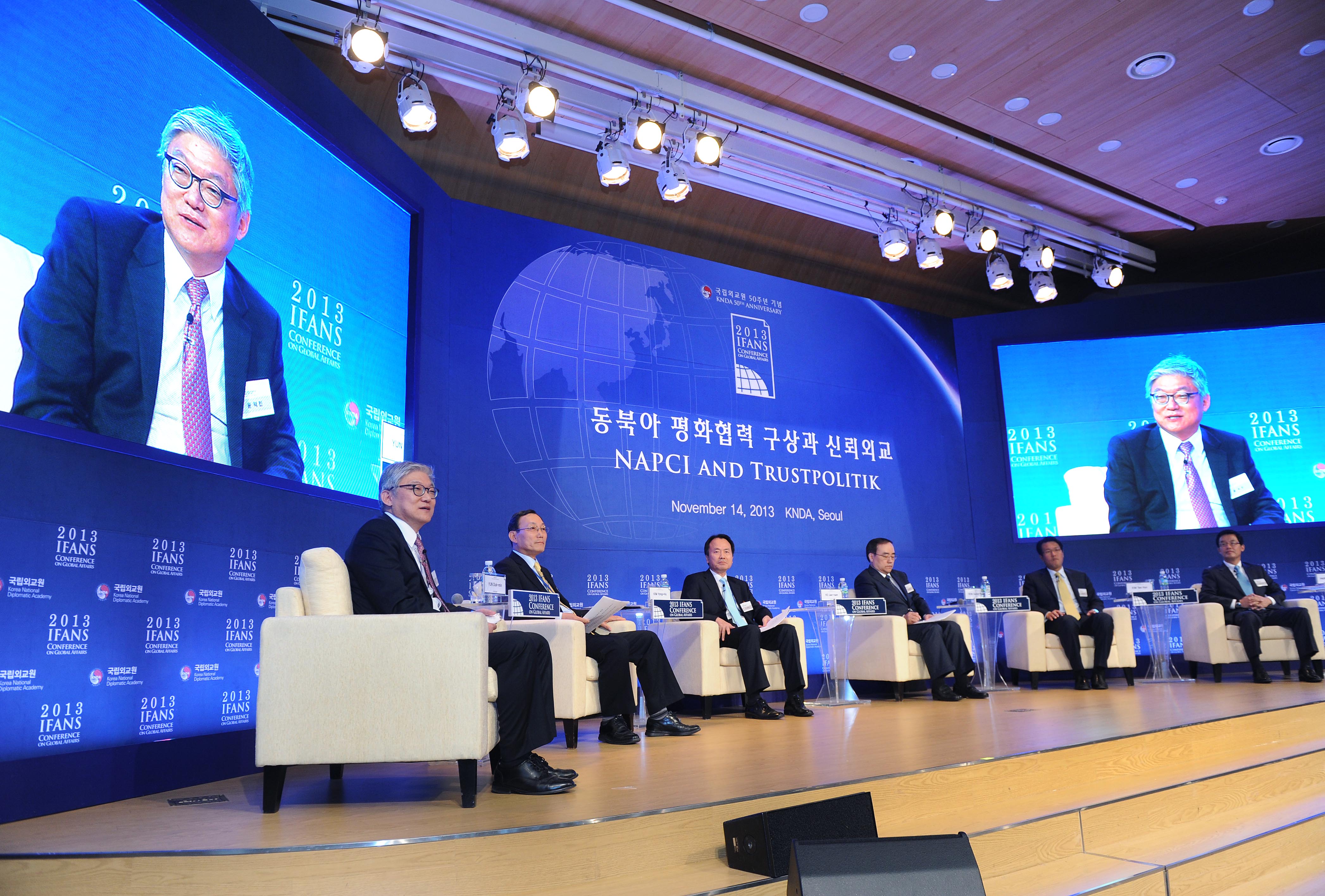
The conference was open to the public and was attended by around 300 people including diplomatic corps in Korea, government officials, experts in international politics and economy, the media as well as students.
- Attached File
-
No attachments